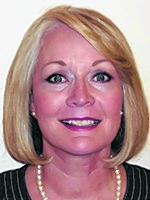
By Diana Nelson
Tempers have flared and issues of racial equality have been on a front burner at recent meetings of the Kyrene Governing Board.
As a result, members of the Kyrene Superintendent’s Community Council will focus on the topic at a Governing Board meeting Tuesday, Oct. 23, at the district’s main office.
A study session, open to the public, begins at 6 p.m., laying out the chronology of what has taken place so far and provide a forum to review the council’s efforts to remove barriers to school services and to create stable learning environments which value diversity and foster inclusivity.
During the past year, Superintendent Dr. Jan Vesely organized separate councils as a goal included in the district’s strategic plan. Vesely says that Kyrene utilizes community engagement as a way to tap into the perspectives of the district’s constituency, creating five separate councils to provide an opportunity for students, teachers, parents, businesses and community members to meet regularly with district officials.
An open call was made for each of the councils and applications were accepted. The current membership is composed of a diverse group of parents, spanning a racially mixed demographic and others who have children with exceptional needs.
Vesely said that each of the councils can provide input to address gaps and to identify solutions to benefit all students.
“In Kyrene, nearly 55 percent of our students are students of color, so their needs are absolutely a priority. The work of the Community Council was kicked off by Dr. Jose Leyba and Dr. Thomas Brown, who both are diversity consultants and continue to provide support to our efforts,” said Vesely.
“In particular, Dr. Leyba is a Kyrene resident, Kyrene parent and grandparent, and he served as a school superintendent in the Valley. He also is a lifelong educator and consultant doing work throughout the United States.”
The work of the Community Council supplements equity efforts previously in place in Kyrene.
“In recent years, our schools have done book studies on cultural competency and created site diversity teams. Each school creates a 90-day plan, which is based on a diagnostic, root-cause analysis, and then staff select improvement strategies focused on targeted needs.
“However, we know that until this work is embedded into our practice, our work is not done…we recognize that we are focused on meeting the needs of all students in Kyrene and our vision, mission, core values and goals speak to this,” said Vesely.
District administrators feel so strongly about setting a positive tone for inclusion that they have issued an RFP (request for proposal) to obtain the services of consultants who can assist the district in managing issues of equity and diversity.
Recently the public-comment portion of a Kyrene Governing Board meeting took center stage, which prompted Vesely to deliver to the audience a verbal refresher course in public decorum.
Kyrene traditionally offers the public a timed, open-mic style, comment period before the formal meeting to give audience members an opportunity to share their concerns, express their opinions or feedback on the work of the district.
“But I feel it necessary to remind the public that the purpose of governing board meetings is to conduct the business of operating the district,” said Vesely. “It is not intended to be used as a community forum or debate.”
Nevertheless, over the course of the last few meetings, the public dialogue has grown increasingly heated and rancorous, and even resulted in shouting between the person at the podium and other audience members.
Ultimately, one of the speakers was asked to leave the meeting. Many of the statements focused on racial tensions between students at several schools, although in a number of cases, they were made by representatives of organizations from outside Kyrene and by people without children in the district.
However, one incident at Centennial school did require a visit from law enforcement and, according the parents of one student, the discipline to those involved was not delivered in an even-handed way.
Vesely explained that legally there is no requirement to issue a call to the public, and that some districts do not have a “blue-card process”—a system that Kyrene uses so all members of the audience who want to speak out loud first must submit a blue card.
Her sentiments were echoed by several board members, including John King, who also reminded those in attendance that the comments delivered are supposed to be directed to the Governing Board and not to other audience members.
Vesely also praised the overwhelming support for the district from area residents.
“I am reminded of my early impressions of the Kyrene community when I became superintendent two years ago,” she said. “The level of community involvement, the support from local businesses, the strength of the parent organizations in our schools—in combination, it’s unlike anything I have seen in my nearly 40 years in education,” said Vesely. “This is a community that cares deeply about its schools, about its students.
“Differences of opinion and constructive criticism intended to inform or redirect our policies and program are welcomed.
“But, we must always conduct ourselves in a respectful and civil manner because our children are watching,” concluded Vesely.

